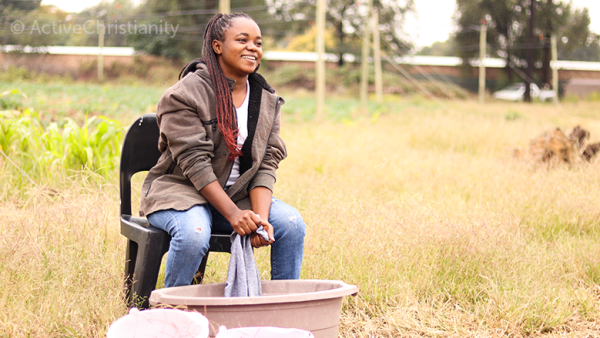“And so, dear brothers and sisters, I plead with you to give your bodies to God because of all he has done for you. Let them be a living and holy sacrifice—the kind he will find acceptable. This is truly the way to worship him.” Romans 12:1 (NLT).
Paul pleaded with the Romans to give their bodies as a living sacrifice. In other words, it was really important for him that they do this. But what does it actually mean to give our bodies as a living sacrifice? Clearly, he was not meaning that we should do this literally. And this cry from his heart was not just for the Romans – it is necessary for us in our day too!
To answer this question, we have put together two articles – one by Sigurd Bratlie and one by Johan Oscar Smith. May this message inspire you to always give your own body as a living sacrifice!
A living sacrifice
Our way to worship God is to give our bodies as an acceptable sacrifice to Him. What I have sacrificed or given is no longer mine. When He came into the world, Jesus said, “You have given me a body to offer … Look, I have come to do your will, O God.” Hebrews 10:5-7 (NLT). He could have used His body to seek His own benefit – to seek praise from people and power, to lead a pleasant life, etc. – but He did not live to please Himself. (John 6:38; Romans 15:3.) He gave His body to God as an acceptable sacrifice. Everything He did with His body was for us and our salvation.
Now we are called to follow Him. Now we must give our bodies as a sacrifice. We must make sure that our body is always ready, holy, acceptable to God to do His will. We must not use it to seek our own interests; in other words, just to do what we ourselves want, but rather use our bodies for our neighbour’s best. (Romans 15:1-2.)
Our tongue must not be used to say whatever we want, to defend ourselves, but to say what God wants – to speak good and upbuilding words, that may be of help to those who hear us. (Ephesians 4:29.) My legs shall not be used to run where I like to go, but to run where I can be of help. My arms shall not be used to take what I like, but to give to the others what can help them. Therefore, my body is meant to be of use to the others, not to only be of use to myself.
If I give everything I have to the poor but do not have love, it does not help me at all. Love does not seek its own benefit. (1 Corinthians 13:3,5.) If I give away everything I have, but try to get some praise for it, or a good reputation, then my body was not a sacrifice when I did it. I have sought my own interests and am nothing. Love does not seek its own interests.
(Sigurd Bratlie)
Not my will, but Your will must be done
Being converted means that I turn away from my own will to do God’s will. Jesus prayed, “Not My will but your will must be done.” Luke 22:42 (CEB). It might seem like God is asking things of you that are humanly impossible for you to do, things you will never be able to do. No, not at all. He has given His commandments that we may do them exactly, and we will receive strength for everything that comes our way in every single day. He always gives grace that we can get help at the right time, and grace is the power to do His will.
When Jesus was on earth, He said, “Look, I have come to do your will, O God—as is written about me in the Scriptures.” Hebrews 10:7 (NLT). Jesus had the power of God’s Spirit to do God’s will because He offered Himself in the power of the eternal Spirit (Hebrews 9:14). He had His own will, but He sacrificed that will to do His Father’s will. The sacrifice was within Himself, and He was obedient; therefore, He could teach us to pray this prayer: “May your will be done on earth as it is in heaven.” Matthew 6:10 (NLT).
The point is that people should do the will of God here on earth. We have received power to do His will through the Holy Spirit which is given to us, the same Spirit that was over Jesus when He was here on earth. Just as any good parent here on earth would not expect more from his children than they can manage, much more will our heavenly Father not expect more from us than we can manage. To believe anything else is unbelief.
Our human reasoning can tell us that God expects us to do the impossible. But these thoughts are sinful; they have nothing to do with reality. God’s will is our sanctification, and it is fully possible to do His will. We must do His will if we are going to be transformed from having a sinful nature to getting a godly nature. He works in us to will and to do, and He takes care not to work in us more than we are able to do.
“Sacrifice and offering, burnt offerings and offerings for sin You did not desire.” Hebrews 10:8. All these sacrifices were outside the body, and they were never able to bring people to the sacrifices within the body – those sacrifices which Jesus Christ came to offer. We are also called to sacrifice. Just as Abraham and God agreed about the sacrifice of Isaac, we also must agree with God to offer what He asks of us. Only then can God’s will be done on earth as it is in heaven.
(Johan Oscar Smith)




